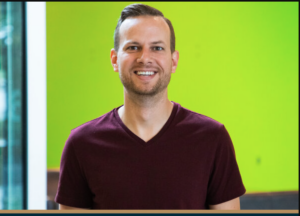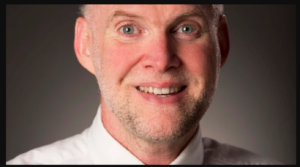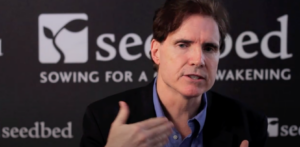In recognition of the passing of Hugh Hefner, publisher of Playboy Magazine, here is a repost on why porn doesn’t work.
You’ve heard the age-old question: If a tree falls in the forest and no one is there to hear it, does it make a noise? Whole papers have been written on that question; doctorates in philosophy earned. They set up recorders in the forest to answer the question. Turns out, the answer is yes. Both for trees, and for us.
What we do reverberates.
Now, you’d have to be pretty ingenious to invent a sin. Paul, the writer of Romans, mentions “inventors of evil,” but the writer of Ecclesiastes says there is nothing new under the sun. If there is any difference between his day and ours, it is that today many of our compulsions can be satiated almost immediately. As close as the next click.
Since no one is around when we feed those temptations, does it really matter? Do private sins have public consequences? As with trees in a forest, the answer is yes.
When we look at porn, we participate in an industry that is intimately connected with drugs, violence and illegal activity. When we look, we support an industry that keeps many women and men in spiritual prison. Every time we look, the body of the one we look at becomes just a little more valuable in the marketplace.
When we look, we hurt the ones we love. Not only is porn a form of adultery and idolatry (not to mention a form of disability, since it alters libido), but also a form of delusion. We set a mental standard for bodily perfection that can only be achieved with an airbrush.
Who can compete with that?
When we look, we hurt the community, because what we feed our spirits affects everything — motivations, attitude, mental health, everything.
And when we look, we hurt ourselves. Porn is idolatry, and idolatry is always a roadblock to spiritual health. When we seek pleasure in things that are not eternal, it numbs the conscience. There is no love in those looks, nothing that lasts. That’s why we keep going back; the effect doesn’t last.
Porn doesn’t work. A choice to have it in our lives is a choice to remain stuck spiritually, emotionally and physically.
So how does a person who has become addicted to porn get free? I get that its complicated but I can think of three good starting points: decision, confession and accountability.
Decision: When Paul comes to the end of yet another list of sins in Colossians, he makes an interesting statement. He says, “You used to behave like that, once, when your life consisted of that sort of thing.” That line is full of hope and potential. Paul acknowledges reality, then casts a vision for what can be. You can decide now not to let your life consist of that any more. This echoes a recovery slogan: “Fake it till you make it.” Every sober life begins with a decision to live differently.
Confession: Choices usually need to be heard to become real. This is why confession is a means of grace. John, chapter three, tells us that everything left in the dark belongs to the enemy; everything brought into the light belongs to Jesus. If the enemy has had control of your mind and emotions long enough, then tell someone and pull the rug out from under the enemy of your soul.
Accountability: Healing happens in community. Any group that values transparency, that knows how to celebrate sobriety milestones, that will hold you accountable for progress, that will challenge you toward honesty … is a great place to heal. One guy made a group out of his Facebook friends — all of them. He regularly reported the number of days he’d been porn-free, and we all rejoiced at his progress. Remember that there is no shame in Christ. The only shame is in not getting the accountability needed to get final freedom.
Private sins have public consequences. Freedom is a choice. That’s something I used to do, but not any more. Because after I came to Christ, I came to. What I couldn’t see then, I see now.








